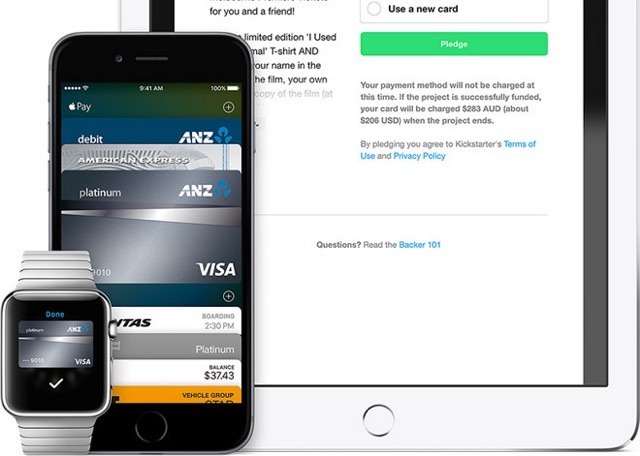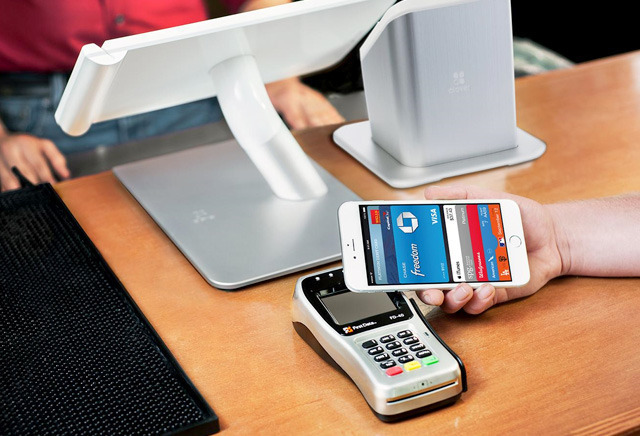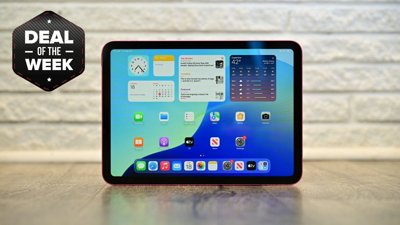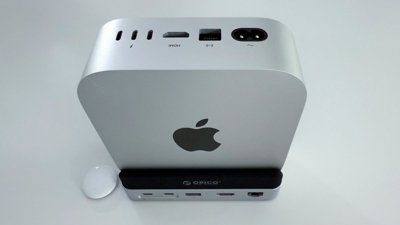Major banks in Australia find alternatives to NFC-based payments, such as Apple Pay, to be an "unrealistic" prospect to the Australian mobile payment marketplace, according to a submission provided to a government regulator, arguing for Apple to open up access of the iPhone's NFC technology to third parties.
The latest submission from the Commonwealth Bank of Australia, Westpac Banking Corporation, the National Australia Bank, and the Bendigo and Adelaide Bank to the Australian Competition and Consumer Commission (ACCC) reiterate earlier arguments concerning their request for NFC access to use their own mobile wallets. This time, ZDNet reports the banks are insisting that alternative mobile payment techniques that avoid using NFC are not a feasible solution for their customers to use.
In the document, originally supplied to the ACCC on March 9 but only recently published, the banks note examples of mobile payments and loyalty programs in other countries, which either use Android with NFC or a non-NFC point-of-sale technology, such as a PIN or an on-screen barcode used to conduct a transaction, for multiple platforms. The banks insist these countries have "less NFC infrastructure in place than Australia, and Android has a much greater presence," claiming Android's market share in France is "well over 70 percent" and "as high as 97 percent" in India.
"These alternatives are unrealistic in Australia, which has the world's highest adoption of contactless NFC card payments and one of the world's highest iPhone market shares, particularly among customers likely to use mobile apps," the bank submission states. "ING Direct recently confirmed that 70 percent of customers who use its banking app use iPhones, which is consistent with the Applicants' experience."
Mobile wallet creators are "locked out of the established payment structure" by Apple, the group claims, with NFC access on the iPhone able to "provide substantial public benefits." These benefits include "more opportunities for cashbacks and other promotions," as using these alternative wallets would avoid the Apple Pay transaction fee, and in theory would provide an incentive to "share some or all of that saving with the customer," as well as to fund development of new features.
Last month, the banks dropped fee negotiations as part of its argument against using Apple Pay, instead opting to concentrate on forcing Apple to open up NFC to other parties. Previously, the banks were denied the ability to collectively negotiate terms with Apple over Apple Pay's fees, and instead were ordered by the ACCC to negotiate individually in a draft determination.
Echoing previous arguments, the banks also write that NFC access is essential for "meaningful competition" between mobile wallets. The one-step tap-for-payment process offered by Apple Pay is seen as a far easier process for end users than competing wallet systems, which require users to interact more with their phones, and typically require multiple steps to perform a transaction.
It is also claimed that Apple's refusal to provide NFC access to third parties is "inconsistent with its own policies and practices." The banks highlight the fact that practically all other hardware on an iPhone can be accessed by third-party apps, including the camera, Bluetooth, the speaker and microphone, and its accelerometer.
Taking the example of camera access, it is claimed the many apps that rely on the hardware to function "could still exist even if they could not access the iPhone camera but relied on images taken and saved by the Apple Camera app. However, most of these apps would be severely degraded in functionality and many would not be possible at all."
By providing the ability for apps to use NFC, it would "allow a multitude of innovative uses of the kind that have developed in relation to these other functions. There is no reason why the NFC function should be singled out and innovation prevented in this one area."
Apple has previously argued that providing third-party access to NFC would compromise security, though the integration of Apple Pay in Apple's devices should not prevent the creation of other digital wallets for iPhones. Despite the disagreement, Apple still wants to work with the resistant banks to provide Apple Pay to their customers.
Following a period of public consultation after publishing a draft determination, the ACCC is expected to deliver a final determination this month.
 Malcolm Owen
Malcolm Owen








-m.jpg)






 William Gallagher
William Gallagher
 Christine McKee
Christine McKee

 Mike Wuerthele
Mike Wuerthele
 Andrew Orr
Andrew Orr
 Andrew O'Hara
Andrew O'Hara





-m.jpg)



51 Comments
Same old story. Resist, resist, resist, relent.
I'm not going to bother reading the article twice, but don't the arguments against Apple seem contradictory?
I'd put my money on Apple having a better understanding of internet security than Australian banks. I can live without Australia having Apple Pay, tho.
It's human nature to resist a change against own mentality. It's matter of time, Australian banks will turn around and support Applepay like banks in the rest of worlds. Apple pay is secure and it works.